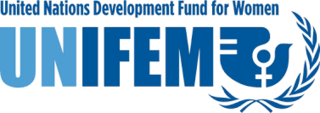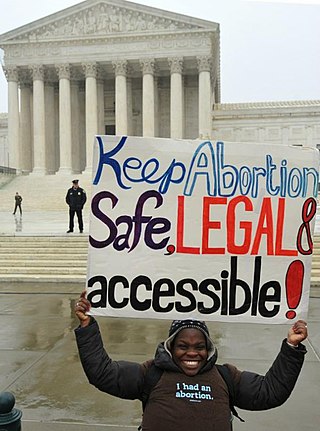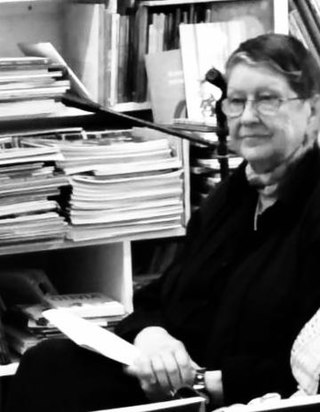Related Research Articles
The sex-positive movement is a social and philosophical movement that seeks to change cultural attitudes and norms around sexuality, promoting the recognition of sexuality as a natural and healthy part of the human experience and emphasizing the importance of personal sovereignty, safer sex practices, and consensual sex. It covers every aspect of sexual identity including gender expression, orientation, relationship to the body, relationship-style choice, and reproductive rights. Sex-positivity is "an attitude towards human sexuality that regards all consensual sexual activities as fundamentally healthy and pleasurable, encouraging sexual pleasure and experimentation." It challenges societal taboos and aims to promote healthy and consensual sexual activities. The sex-positive movement also advocates for comprehensive sex education and safe sex as part of its campaign. The movement generally makes no moral distinctions among types of sexual activities, regarding these choices as matters of personal preference.

Women in Cuba have the same constitutional rights as men in the economic, political, cultural and social fields, as well as in the family. Cuba is regarded as a regional front-runner in women's rights. According to Article 44 of the Cuban Constitution, "The state guarantees women the same opportunities and possibilities as men in order to achieve woman’s full participation in the development of the country." As of 2015, women hold 48.9% of the parliamentary seats in the Cuban National Assembly ranking sixth of 162 countries on issues of female participation in political life. Many women in Cuba come from different racial backgrounds including Afro-Cuban women. Along with Afro-Cuban women, women in Cuba, formerly a marginalized group, were able to gain higher educational levels and equal advancements in their respective careers. The 1975 Family Code was designed to allow Cuban women to share the household duties fairly with their spouses. Job opportunities were available in the cities and as a result, many Cuban women left the countryside to work and live in the cities. However, because of the increased number of Cuban women studying and working, the national birth rate has declined. Despite the fact that desegregation was enforced in Cuba, there are still some issues in regards to fair housing in Cuba.
Reproductive rights are legal rights and freedoms relating to reproduction and reproductive health that vary amongst countries around the world. The World Health Organization defines reproductive rights as follows:
Reproductive rights rest on the recognition of the basic right of all couples and individuals to decide freely and responsibly the number, spacing and timing of their children and to have the information and means to do so, and the right to attain the highest standard of sexual and reproductive health. They also include the right of all to make decisions concerning reproduction free of discrimination, coercion and violence.
Antisexualism is opposition or hostility towards sexual behavior and sexuality.

The United Nations Development Fund for Women was established in December 1976 originally as the Voluntary Fund for the United Nations Decade for Women in the International Women's Year. Its first director was Margaret C. Snyder. UNIFEM provided financial and technical assistance to innovative programmes and strategies that promoted women's human rights, political participation and economic security. Since 1976 it supported women's empowerment and gender equality through its programme offices and links with women's organizations in the major regions of the world. Its work on gender responsive budgets began in 1996 in Southern Africa and expanded to include East Africa, Southeast Asia, South Asia, Central America and the Andean region. It worked to increase awareness throughout the UN system of gender responsive budgets as a tool to strengthen economic governance in all countries. In 2011, UNIFEM merged with some other smaller entities to become UN Women.
The Gruber Prize for Women's Rights, established in 2003, was one of five international prizes worth US$500,000 awarded by The Peter and Patricia Gruber Foundation, an American non-profit organization.

Reproductive justice is a critical feminist framework that was invented as a response to United States reproductive politics. The three core values of reproductive justice are the right to have a child, the right to not have a child, and the right to parent a child or children in safe and healthy environments. The framework moves women's reproductive rights past a legal and political debate to incorporate the economic, social, and health factors that impact women's reproductive choices and decision-making ability.
Pınar İlkkaracan is a researcher trained both in psychotherapy and political science and a human rights activist. She is the co-founder of two NGOs, Women for Women’s Human Rights (WWHR) – NEW WAYS, a women’s NGO that led various successful legal reforms in Turkey towards gender equality in Turkey and the Coalition for Sexual and Bodily Rights (CSBR), a network of leading organizations and academics from 14 Muslim countries.
Prostitution in Libya is illegal, but common. Since the country's Cultural Revolution in 1973, laws based on Sharia law's zina are used against prostitutes; the punishment can be 100 lashes. Exploitation of prostitutes, living off the earnings of prostitution or being involved in the running of brothels is outlawed by Article 417 of the Libyan Penal Code. Buying sexual services isn't prohibited by law, but may contravene Sharia law.
Sexual and reproductive health and rights or SRHR is the concept of human rights applied to sexuality and reproduction. It is a combination of four fields that in some contexts are more or less distinct from each other, but less so or not at all in other contexts. These four fields are sexual health, sexual rights, reproductive health and reproductive rights. In the concept of SRHR, these four fields are treated as separate but inherently intertwined.

Morgan Carpenter is a bioethicist, intersex activist and researcher. In 2013, he created an intersex flag, and became president of Intersex Human Rights Australia. He is now a co-executive director. In 2015, he cofounded a project to mark Intersex Awareness Day.

Gender inequality in Sri Lanka is centered on the inequalities that arise between men and women in Sri Lanka. Specifically, these inequalities affect many aspects of women's lives, starting with sex-selective abortions and male preferences, then education and schooling in childhood, which influence job opportunities, property rights, access to health and political participation in adulthood. While Sri Lanka is ranked well on several gender equality indices in comparison to other countries in the region, there are also some sources that question the verity of these indices. However, globally, Sri Lanka ranks relatively lower on gender equality indices. Overall, this pattern of social history that disempowers females produces a cycle of undervaluing females, providing only secondary access to health care and schooling and thus fewer opportunities to take on high level jobs or training, which then exacerbates the issue of low political participation and lowered social rights, a cycle studied and noted on by Dr. Elaine Enarson, a disaster sociologist studying the connection between disaster and the role of women.
The International Women's Health Coalition (IWHC) is a non-governmental organization founded in 1984 based in New York City. It focuses on issues relating to women and girls' human rights, health and equality and represents part of the women's movement that recognizes that many challenges to gender equality lie in challenges in health issues and in raising families. The IWHC is one of the oldest currently active global feminist groups.
Radhika Chandiramani is the founder of TARSHI, a New Delhi–based NGO that works on issues of sexual and reproductive health and rights. She is a clinical psychologist, writer and editor. Her published works on sexuality and human rights have been covered in media and scholarly reviews. Chandiramani received the MacArthur Fellowship in the year 1995 for leadership development. She is also the recipient of the 2003 Soros Reproductive Health and Rights Fellowship from Columbia University Mailman School of Public Health.
White feminism is a term which is used to describe expressions of feminism which are perceived as focusing on white women but are perceived as failing to address the existence of distinct forms of oppression faced by ethnic minority women and women lacking other privileges. The term has been used to label and criticize theories that are perceived as focusing solely on gender-based inequality. Primarily used as a derogatory label, "white feminism" is typically used to reproach a perceived failure to acknowledge and integrate the intersection of other identity attributes into a broader movement which struggles for equality on more than one front. In white feminism, the oppression of women is analyzed through a single-axis framework, consequently erasing the identity and experiences of ethnic minority women the space. The term has also been used to refer to feminist theories perceived to focus more specifically on the experience of white, cisgender, heterosexual, able-bodied women, and in which the experiences of women without these characteristics are excluded or marginalized. This criticism has predominantly been leveled against the first waves of feminism which were seen as centered around the empowerment of white middle-class women in Western societies.
The women's liberation movement in Asia was a feminist movement that started in the late 1960s and continued into the 1970s. Women's liberation movements in Asia sought to redefine women's relationships to the family and the way that women expressed their sexuality. Women's liberation in Asia also dealt with particular challenges that made the liberation movement unique in different countries.

Abortion in Kenya is prohibited with the exception of certain circumstances including danger to the life and health of the expectant mother, and rape. Unsafe abortions are a major cause of deaths and health complications for women in Kenya.
Abortion in Puerto Rico is legal throughout pregnancy. On June 22, 2022, the Senate passed a bill limiting abortion to 22 weeks, with exceptions for danger to the mother's life, fetal defects, and if the fetus would not be viable. The bill will need to be considered by the House.

My body, my choice is a feminist slogan used in several countries, most often surrounding issues of bodily autonomy and abortion.

Elvira Lutz is a Uruguayan midwife, sex educator, and writer. A feminist activist, she has been an advocate for women's sexual and reproductive rights, and a member of the Advisory Council of the Latin American and Caribbean Women's Health Network (RSMLAC).
References
- 1 2 3 4 Ilkkaracan, Pinar (1997). "Turkey: Women for Women's Human Rights" . Women's International Network News. 23 (3): 61 – via EBSCOhost.
- ↑ Arin, Canan (1997). "The Legal Status of Women in Turkey" . Women's International Network News. 23 (3): 62 – via EBSCOhost.
- ↑ Amado, Liz Ercevik (2006). "Promoting Sexual Rights Through Human Rights Education: Experiences at Grassroots in Turkey". IDS Bulletin. 37 (5): 117–122. doi:10.1111/j.1759-5436.2006.tb00312.x.
- ↑ Hessini, Leila (2007). "Abortion and Islam: Policies and Practice in the Middle East and North Africa". Reproductive Health Matters. 15 (29): 75–84. doi: 10.1016/S0968-8080(06)29279-6 . ISSN 0968-8080. JSTOR 25475294. PMID 17512379.
- ↑ Hogg, Jonny; Pamuk, Humeyra (2014-07-22). "Fight against domestic violence stalls in patriarchal Turkey". Reuters. Retrieved 2020-03-08.
- ↑ Dilanian, Ken (2004-09-15). "Turks Won't Compel Fidelity". The Honolulu Advertiser. p. 12. Retrieved 2020-03-08– via Newspapers.com.
- ↑ Marshall, Gul Aldikacti (2009). "Authenticating Gender Policies through Sustained-Pressure: The Strategy Behind the Success of Turkish Feminists" . Social Politics: International Studies in Gender, State and Society. 16 (3): 358–378. doi:10.1093/sp/jxp014. S2CID 145085527 – via Project MUSE.
- 1 2 3 Cad (1996). "Turkey: Feminists, Lesbians Organize". Off Our Backs. 26 (2): 7. ISSN 0030-0071. JSTOR 20835387.
- ↑ Ilkkaracan, Pinar (2002). "Building Feminist Solidarity: Women Hold Conference on Sexuality And Social Change". Off Our Backs. 32 (3/4): 18–21. ISSN 0030-0071. JSTOR 20837539.
- ↑ "Statement on the 48th Session of the UN Commission on Population and Development, 27 April 2015". Reproductive Health Matters. 23 (45): 148. 2015. doi: 10.1016/j.rhm.2015.07.006 . ISSN 0968-8080. JSTOR 26495852. PMID 26278842. S2CID 40521636.